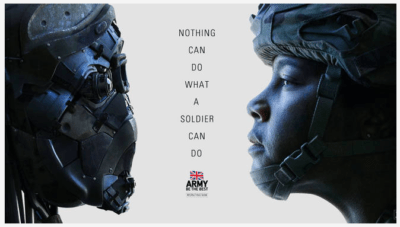Is pushing the cadets really in pupils’ best interests?
ForcesWatch comment
An interim report praising the social mobility benefits of the cadet forces was published last week by the University of Northampton.
It states that cadet units can improve attendance and educational achievement, supporting children in ways that schools cannot, and was welcomed by the defence secretary Michael Fallon, who took the opportunity to announce 31 new units in state schools.
The continual promotion of cadets in schools by ministers, at a time when education and other services for young people are being severely cut, suggests that the government feels that it still needs to sell what is primarily a defence policy to the education sector.
This focus on cadets can only be understood in the context of government concerns about the shortfall in military recruitment. The recent report to the prime minister by ex-defence minister Mark Francois, Filling the Ranks, recommends more cadets units in schools, “with a particular emphasis on underprivileged and BAME areas”, and that careers in the armed forces should be promoted.
The MoD’s defence priorities are sometimes adverse to the best interests of the young people with whom it interacts
In fact, military activities in education, have always been about boosting recruitment and creating a widespread positive awareness of the armed forces. The Northampton report itself regularly mixes child development aims with defence aims such as recruitment, retention, financial savings, and promoting the armed forces. Unfortunately, it does not explore whether encouraging school children towards a career in the forces is actually a good thing, despite a body of evidence that military service can be damaging to the socioeconomically disadvantaged or emotionally troubled young people that new cadet units are aimed at.
On the contrary, demonstrating that cadet units are fulfilling ministerial policy statements seems to be a principal objective of the report. It does that emphatically, despite being based on “partial data” and presenting “preliminary findings”. Not a single negative view or experience is reflected in the quotes from cadets, despite plenty of anecdotal evidence from elsewhere that cadet units can be a tough environment for some kids.
The MoD’s defence priorities are sometimes contrary to the best interests of the young people with whom it interacts. This is evidenced by the much-criticised practice of enlisting recruits before they reach adulthood, the culture of silence and covering up abuse, and what has been called the “moral exploitation” of promoting ethically perilous agendas to young people.
While the cadet forces may make a social impact, so too would any well-funded youth programme. Impact assessments of Girlguiding, Scouts and youth work in general have also found very positive results. That the government has commissioned this report to validate cadet expansion alone is telling. Ironically, the report attributes some of the social impact of the cadets to compensating for the loss of mental health services for young people.
Supporting the cadets while cutting other youth provision biases social mobility opportunities towards military activities, which not all pupils or parents will be comfortable with. Fortunately, most schools still have an array of extracurricular activities which do not operate within a narrow, militaristic framework.
Dr Brian Belton, an international authority on youth work, has remarked on the rhetorical spin around the cadet expansion programme and questions who the prime beneficiary usually is.
“One ‘invests’ in youth and this means there is an expected dividend,” he has said. “The latter has of late been framed as potential and actual social mobility, but this is a metaphor (perhaps a euphemism) for the creation of a relatively flexible, relatively skilled, relatively cheap workforce.”
Belton argued that “military ethos”-type projects like the cadet forces are not what we actually need today, saying: “the modern world does not require conformity, it demands innovation.”
While the cadet forces have much to offer some young people, he said that to sell them “as a sort of general social panacea for youth is the equivalent to flogging snake oil”.
He is right to question how social mobility is being framed and how the military is so often presented as offering a solution to complex social problems. Instead of pushing militarist conformity, we should be investing in education, mental health facilities, and youth work that supports young people to think critically, innovatively and ethically.
Also see Defence secretary announces more state school cadet units
See more: cadets, recruitment,
Like what you read?
> Sign up for our newsletter or blog notifications
> Support our work – from just £2 a month









